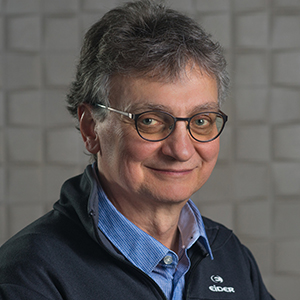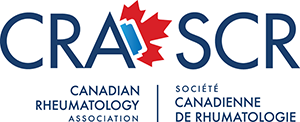
2023 Distinguished Rheumatologist
Gilles Boire, MD, MSc, FRCP(c)
Dr. Boire is Professor in the Department of Medicine of the Faculty of Medicine and Health Sciences of the Université de Sherbrooke. As rheumatologist at the CIUSSSE-CHUS in Sherbrooke, he treats both adult and pediatric patients.
Dr. Boire is a graduate from Université of Montréal (BSc Chemistry, 1975) and Université de Sherbrooke (MD, 1981; MSc Clinical Sciences 1991). He his certified in Internal Medicine (1985) and Rheumatology (1986) and completed postdoctoral training at Université de Sherbrooke (1986-87) and Yale University (1987-89).
His major research interests are autoimmunity, in particular the Ro/hY RNA complex, improving first-line care of fragility fracture patients, and early prognostic classification of patients with recent onset inflammatory arthritis. To that aim, he developed in 1997 the ongoing Early Undifferentiated PolyArthritis (EUPA) cohort and contributed actively to the development and analysis of several multicentric cohorts in adult (CATCH; BIODAM) and pediatric (REACCH-Out; BBOP) inflammatory arthritis. He recently developed the large ‘Biobanque de pathologies et perturbations immunes et inflammatoires’ and the ‘University of Sherbrooke Registry of Advanced Therapies’ to facilitate personalized approaches to the treatment of these patients.
Since 1990, his research was continuously supported by The Arthritis Society, the Canadian Institutes of Health Research (CIHR), the Fonds pour la recherche du Québec – Santé (FRQS), the Fonds d’aide aux chercheurs et à la recherche (FCAR), the Natural Sciences and Engineering Research Council of Canada (NSERC), the Canadian Arthritis Network (CAN), and the Canadian Initiatives for Outcomes Research in Rheumatology Care. He is actively involved in several clinical and fundamental research projects and is the author of 178 peer-reviewed publications and more than 400 communications.
In addition to running a busy clinic and assuming several administrative duties, Dr. Boire supervised 20 graduate and postgraduate students as well as 27 rheumatology fellows, 5 of which are still in training.

